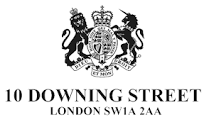HISTORIC PRESS RELEASE : Lord Grabiner´s report on the informal economy [March 2000]
The press release issued by HM Treasury on 9 March 2000.
New measures to help people move from the hidden economy into legitimate work – and tough new powers to detect and punish offenders who refuse to do so – are the main recommendations of Lord Grabiner QC’s report on the informal economy published today.
The report suggests that every year billions of pounds have been lost to the informal economy. The report estimates that 120,000 are working while ‘signing on’ at a cost of nearly half a billion pounds to the taxpayer.
Chancellor Gordon Brown welcomed the report saying:
“Lord Grabiner’s report suggests that for years billions of pounds have been lost to the informal economy every year, leaving honest, hard working taxpayers, who play by the rules, footing the bill for those who either don’t pay the taxes they owe or claim benefit while they are working.
“His clear and comprehensive strategy, based on opportunities tied to new obligations is designed to tackle the informal economy with a package of new rights and new responsibilities. It proposes incentives to encourage people into legitimate work – and tough new penalties for those who fail to do so and continue to defraud the rest of us.
“The government is delivering more opportunities than ever before to work. Vacancies are at record levels and step by step we are removing the barriers to employment. But just as there are more opportunities, so too we believe new obligations.
“Defrauding the benefit system, means defrauding the poor and preventing us getting the resources to those in need. We would be failing in our obligation to those who need the benefits system if we allowed people to defraud it.
“I welcome Lord Grabiner’s report and in the Budget will announce in detail how we will implement his recommendations.”
The report, “The Informal Economy”, proposes new measures to tackle the hidden economy whilst at the same time making clear that some people get trapped in the informal economy because they are not aware of the legitimate opportunities that are available.
Lord Grabiner concludes that the Government should introduce new ways to tackle for those who persist in the hidden economy: including:
- new legislation to introduce a new statutory offence of fraudulently evading income tax, to be tried in the magistrates’ court;
- subjecting people, suspected of working while signing on, to additional requirements by requiring them to sign on more frequently and at unpredictable times;
- as in the USA, a ‘two strikes and you are out’ approach – for the first time, removing people’s right to claim benefit for a specified time if they have been convicted twice; and
- giving investigators the power to trace suspects by making routine ‘reverse searches’ of the telephone directory.
Among his other 17 recommendations, Lord Grabiner proposes incentives to encourage people into legitimate work including recommendations to:
- set up an anonymous, confidential telephone line to advise those in the hidden economy about how they can put their affairs in order, and how the tax and benefit rules apply to them;
- build on the help that is given to people who start out in self-employment and extend recent changes to make it easier for people claiming means-tested benefits to leave benefit and take up legitimate jobs; and
- launch a new advertising drive to publicise the incentives available for people to join the legitimate economy, including the Working Families Tax Credit, and the punishment they will face if they stay in the informal economy.



